Open Class Ep.16 Reimagining English Class Possibilities
At Dulwich, English is more than just a core subject—it is a language of thought that permeates every corner of the campus. Here, language learning extends beyond the classroom, embedding itself in every aspect of academic exploration—from interdisciplinary courses to international competitions, from in-depth reading to critical thinking, fostering a rich and immersive English-learning environment.
In this edition of the Open Class Series, we take a comprehensive look at how Dulwich supports students in developing their English skills at different stages. Unlike previous sessions, which focused on a single teacher’s lesson, this time we stepped into multiple English classrooms across Years 10 and 11, capturing the diverse teaching approaches of different educators. Mr Luke Webb, Head of English and Modern Languages, will guide us through the three core English courses, illustrating how the school provides tailored in-class and extracurricular support to help every student build a personalised language-learning journey.
Three Pathways to English Learning
In our school, lower school students follow different English courses tailored to their proficiency level and academic needs:
ESL (English as a Second Language)
All Year 10 and 11 students take ESL, which focuses on improving their reading, writing, listening, and speaking skills. The course also prepares them for the IGCSE ESL exam, ensuring they are equipped with the language skills necessary for both academic and everyday communication.
Academic English
Designed for students who require additional academic language support, this course helps them understand and use subject-specific English in disciplines such as science, mathematics, and humanities. The focus is on developing strong academic writing skills and clear communication.
EAL(English as an Additional Language)
For students who need extra reinforcement in English, EAL provides additional lessons to strengthen their foundation, helping them build confidence and adapt to an English-speaking learning environment.
Mr Webb explained that depending on their needs, students may take up to 11 English lessons per week, ensuring they receive comprehensive support, "If a student takes all three of those English courses, they will have 11 lessons a week of English. All of our students take ESL, which is five. Many of our students take Academic English, which takes the number up to eight. Some students, a very small number of students, take the EAL course, which means they have 11 hours of English a week."
Inside the Classroom: How English is Taught
During the filming of this Open Class, we observed a range of dynamic and engaging lessons that reflect the department’s structured yet interactive approach.
In the ESL lesson, students explored cinema review writing, a key component of the IGCSE English exam. They practised using correct grammar and tenses, ensuring they structured their reviews appropriately and expressed their opinions effectively.
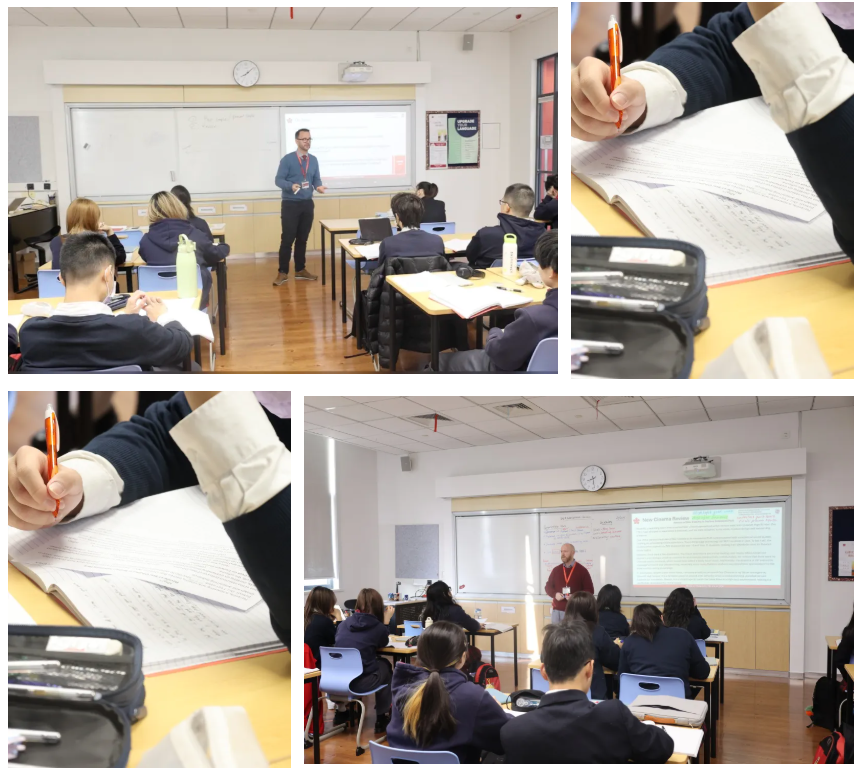
In the English Support class, students analysed bar charts and practised structured writing using the PEEL method (Point, Evidence, Explanation, Link). This technique helps students structure their paragraphs effectively and is a skill they can apply across different subjects, including science and mathematics. Mr Webb highlighted how this supports students beyond English classes, "The reason the students analyse bar charts is because this is another skill that they use in all their subjects. In mathematics, they might look at a bar chart. In a biology or physics question, they might have bar charts. This will help them for those courses, but also for their IELTS and TOEFL exams."
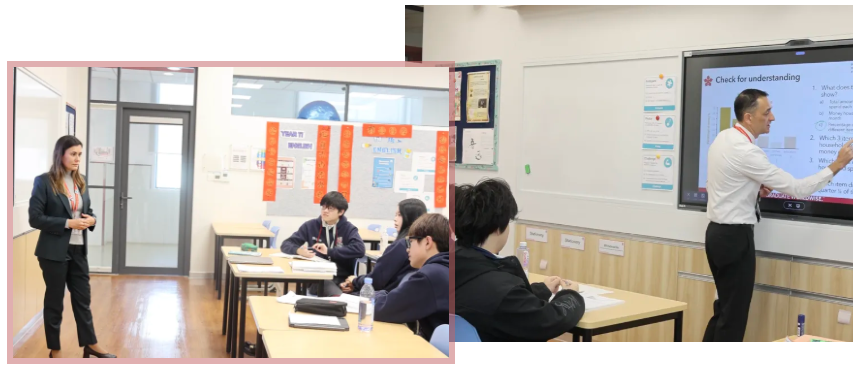
In the Academic English lesson, students worked in pairs and small groups to practise their speaking skills through structured debates. The aim was to improve their ability to express opinions, listen actively, and engage in academic discussions.
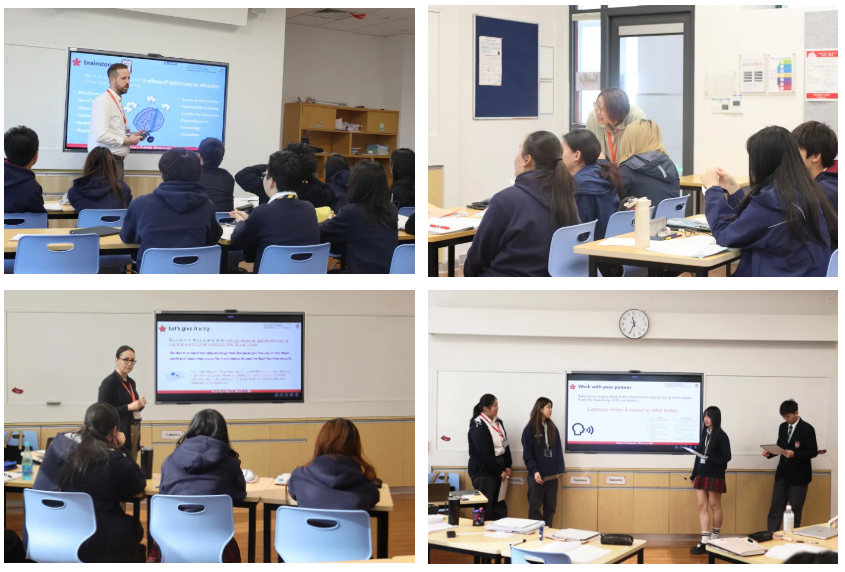
Mr Webb emphasised the importance of consistent practice in language learning.
"Most of our classes, a lot of the time, is spent practising English or listening in English. The reason we spend so much time on this is that it will help them for all of their exams, for university, and when they live in another country, where they are studying or socialising in English. The other main aim is to force them to practise, because a lot of students like to learn from a book, without actually using what they've learned and saying the words."
Beyond the Class: A Culture of English Learning
At our school, learning English is not just confined solely to the classroom but is integrated throughout a variety of activities and programmes, helping students to use the language naturally in diverse contexts. The school library both provides an abundance of English reading resources and organises a range of activities designed to further stimulate students’ interest in learning English. For instance, during the “Literature Talks” at the start of each academic year, new students are guided by their senior peers to systematically master library research techniques and thematic reading strategies. This cross-year “dialogue” not only allows newcomers to gain a clear understanding of how in-depth reading can enhance language proficiency, but also provides senior students with a practical platform to hone their public speaking and communication skills, thereby creating a virtuous cycle of knowledge transmission.
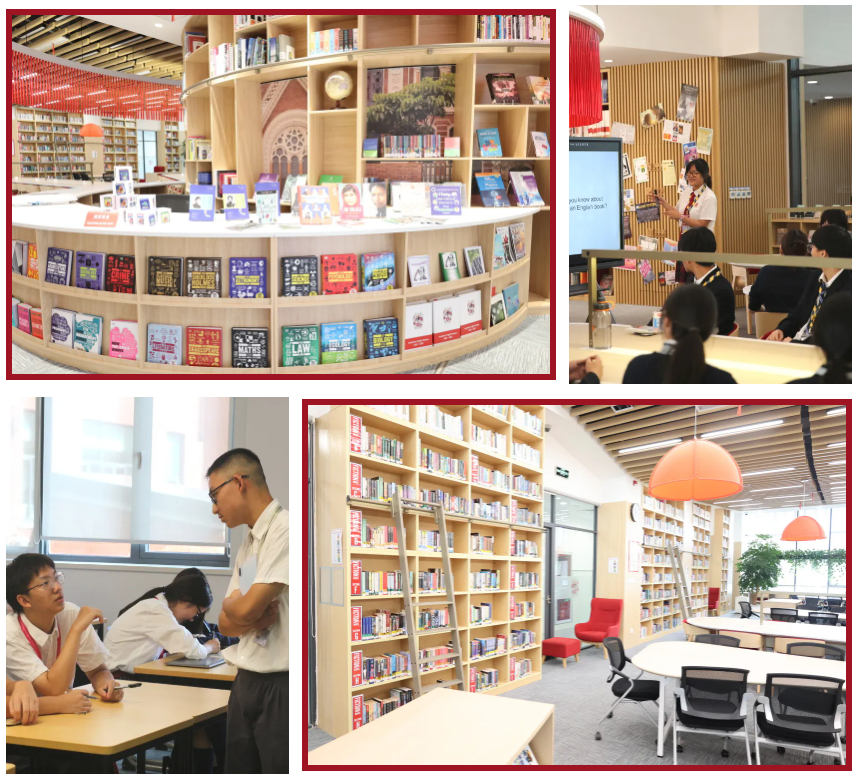
Mr Webb believes that the benefits of reading for language development are very direct, "We believe that improving one's English is inextricably linked to reading. Students can begin with books in areas that interest them, such as those on science or mathematics; we also encourage them to read non-fiction, as such books not only expand their vocabulary but also improve their ability to process English more quickly."
Furthermore, public speaking and debate competitions serve as vital platforms for developing students' English communication skills. From Soapbox public speaking events to House Debates, students practise their spoken English in formal settings, thereby boosting their confidence and expression. The school also encourages students to participate in international essay competitions; for example, our students have represented China in the TSL International Debate Competition, and each year, some are shortlisted for the John Locke Essay Competition. These experiences enhance students' English speaking and writing abilities and make them more competitive in international academic environments.
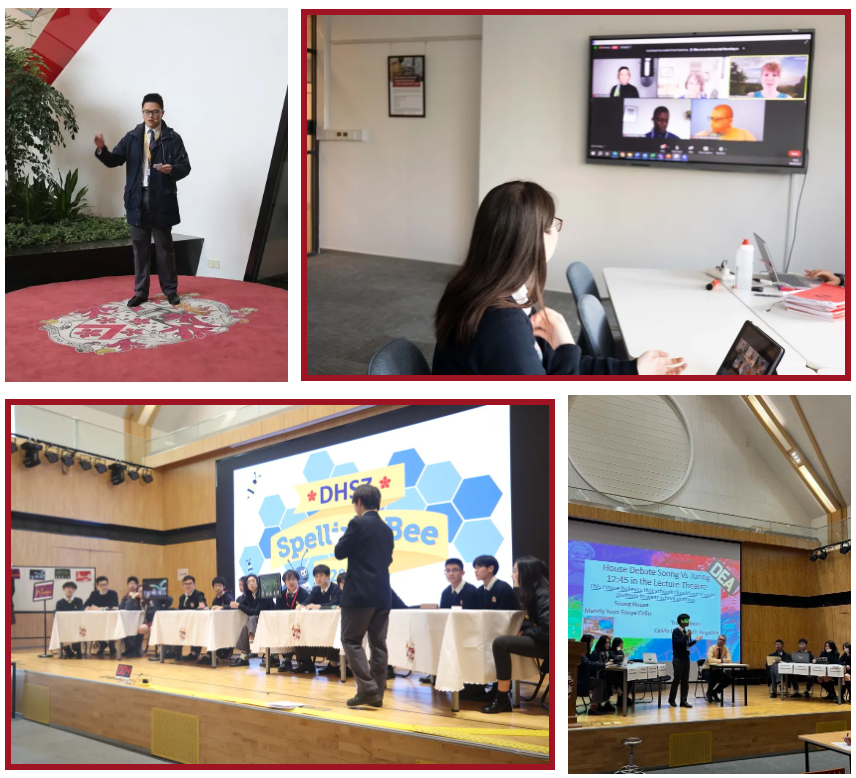
Mr Webb also introduced other academic resources that we share through the EiM Group network. Last month, we hosted internationally renowned poet Mark Grist for a poetry workshop, where he shared creative writing techniques and inspired the students’ literary interests. This initiative not only exposed students to a range of English expression styles but also enabled them to discover the joy of self-expression through creative writing. Such a borderless learning experience enables their language skills to naturally evolve into global competencies.
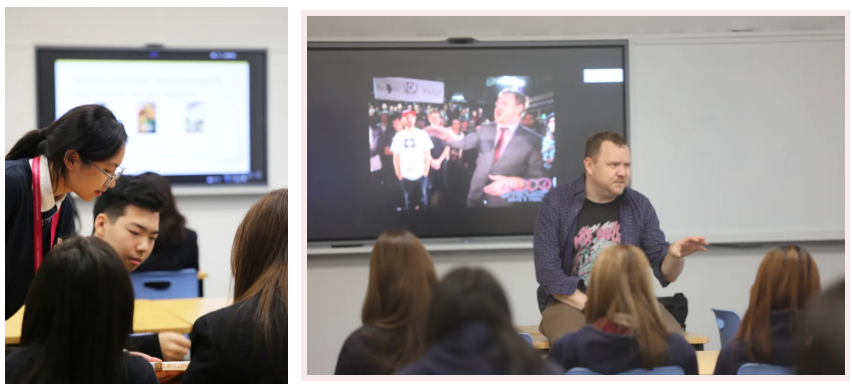
Through structured courses, interactive classroom activities, and a wealth of extracurricular opportunities, our school offers a truly immersive English-learning experience. Students do not just learn English; they use it, practise it, and excel in it—both academically and beyond.






